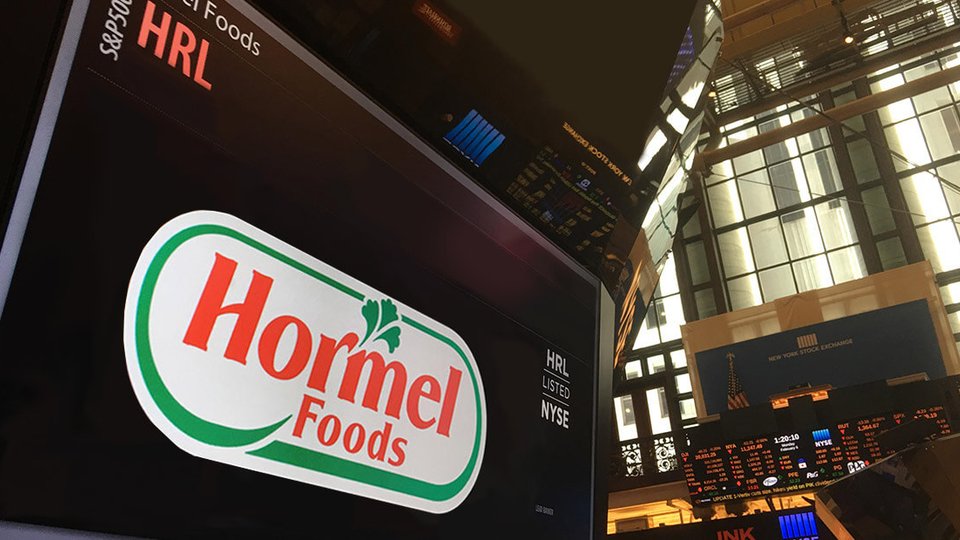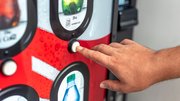Foodservice
Hormel Foods reports record Q3 sales, earnings beat expectations

August 25, 2020
Hormel Foods Corp.has reported record sales of $2.4 billion for the third quarter ending July 26, a 4% increase over the prior year's $2.29 billion, despite rising COVID-19 related costs, according to a press release.
Earnings were $203 million, a 2% gain over last year's $199.43 million.
Basic earnings per share were 38 cents while diluted EPS were 37 cents, compared to 37 cents and 37 cents, respectively, for last year's third quarter. Company shares rose 1.6% in premarket trade Tuesday and stood at $52.75 at 9:40 a.m. after it posted better-than-expected earnings for its fiscal third quarter, according to Marketwatch.
The company paid its 368th quarterly dividend on Aug. 17 at an annual rate of 93 cents per share, an 11% gain over the prior year.
"We had an excellent third quarter with strength across our retail and deli businesses, along with a rebound in our foodservice business," Jim Snee, chairman of the board, president and CEO, said in the release. "The intentional balance we have built across our portfolio has once again enabled us to generate stable cash flows in a very dynamic time period, even as we absorbed significant incremental costs in our supply chain due to the COVID-19 pandemic."
U.S. retail sales rose 19%, the same amount U.S. foodservice sale declined. U.S. deli sales rose 4% while international sale fell 2%.
Refrigerated foods sales rose 5% from $1.3 billion to $1.36 billion while profit declined by 11% from $171.8 million to $152.8 million. Volume and sales increased as strong demand for branded retail and deli products, higher fresh pork commodity sales and the impact from the Sadler's Smokehouse acquisition more than offset a decline in foodservice sales. Segment profit declined as a result of lower foodservice sales, incremental COVID-19 related costs and losses on strategic hog hedge positions.
Grocery product sales rose 7% from $543 million to $580.8 million while segment profit jumped 36% from %59.8 million to $80.2 million. Volume and sales increased due to strong consumer demand across center store brands, including SPAM, SKIPPY, Herdez, Hormel Compleats and Dinty Moore. Improved sales and favorable product mix drove the segment profit gain.
The COVID-19 pandemic and subsequent changes in consumer behavior drove higher and sustained retail sales in each of the company's segments. The company delivered market share gains in many of its retail categories as consumers purchased branded food products at an accelerated rate through various retail outlets, including traditional, mass, club and discount retailers.
The company's investments in e-commerce led to strong demand from both e-commerce retailers and through grocery pickup and delivery. Overall, deli channel sales increased even as some categories declined.
Foodservice net sales rebounded since the second quarter but still remained well below year-ago levels. International sales decreased primarily due to lower export sales of commodity pork and turkey products in the international, other and Jennie-O Turkey store segments, respectively.
"We expect the fourth quarter to mirror many of the dynamics we saw in the third quarter, including strength from our retail businesses and the ongoing recovery in our foodservice business," Snee said in the release. "However, the magnitude of additional recovery in the foodservice industry, the performance of the entire food supply chain and the state of the broader economy remain highly uncertain."
"As we begin the fourth quarter, we are actively addressing two areas of our business," Snee said. "First, while we saw an improvement in the third quarter, our foodservice business was still behind last year, which is a trend we expect to continue into the fourth quarter."
"Second, our plant professionals have done heroic work to meet the high level of demand we are seeing across our business," he said. "In most businesses we are producing more product than we ever have, which is quite an accomplishment. However, in some key categories, the ongoing increased demand and impact of COVID-19 in our manufacturing facilities has forced our supply chain to find alternate solutions to increase production, including relying on our network of trusted co-manufacturing partners."
For an update on how the coronavirus pandemic has affected convenience services, click here.
 ChatGPT
ChatGPT Grok
Grok Perplexity
Perplexity Claude
Claude






